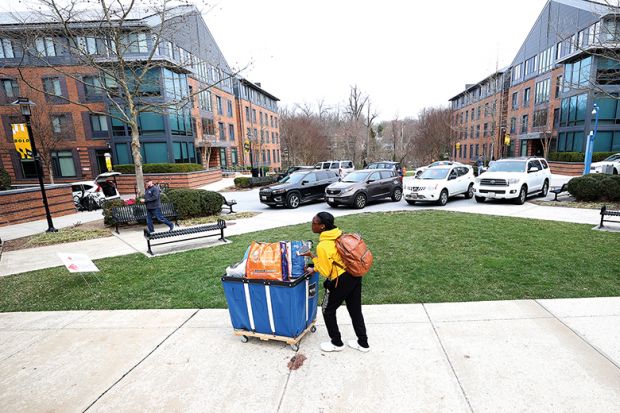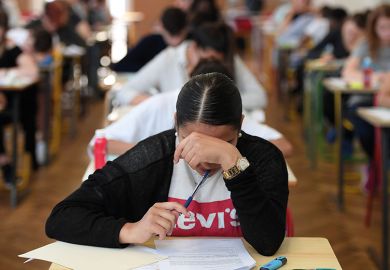US colleges largely appear to be managing the job of finishing their spring semesters online, but there are warnings of extensive harm to many institutions if remote learning remains the only option by the autumn.
“We’re running a big national experiment in online learning,” said Paul LeBlanc, president of the 140,000-student Southern New Hampshire University. “No one in their right mind would design it to look like this,” he added.
SNHU normally teaches most of its students remotely, as one of the nation’s biggest and most experienced not-for-profit online post-secondary operations. Although circumstances are far from optimal, almost any traditional college “can muddle through these next six weeks or so” in an online environment, just by using basic web-based communications functions, Dr LeBlanc said.
Come September, however, he and other experts are warning, the widespread problems now being seen nationally – including faculty confusion, student attrition, inadequate technologies and supports, and wide inequalities tied to income and race – could devastate many institutions.
Early warning signs include surveys showing large percentages of high school seniors considering forgoing higher education in the fall or studying at an institution close to home – and current students are making similar assessments.
Into that chaos, companies with expertise in online operations are flooding institutional leaders with offers of help. Their for-profit services include classroom and curriculum management as well as a range of tools for messaging, notifying and video-conferencing.
Many institutions do have experience with online options and are making good use of their knowledge and resources. But given the sudden demand for universal expansion, many are also eager for guidance. Dr LeBlanc said he had received “a ton of phone calls” from fellow university presidents seeking advice.
"It's hard to overstate how busy we are right now," said Christopher Paucek, chief executive officer of 2U, a for-profit company that helps colleges and universities translate their courses into online versions.
One of the biggest misplaced concerns among institutional leaders grasping for help, Dr LeBlanc said, surrounds their focus on academic aspects. Teaching online does require adaptions, he said, but the more important considerations involve recreating student support and community life.
That is especially urgent for those from less-advantaged backgrounds, Dr LeBlanc said. “Our most underserved students are most at risk, and I fear we’re going to lose a lot of them.”
But he did see one good early sign in the heavy attention being paid by universities to student needs through actions such as reducing testing and offering or even mandating pass-fail grading systems.
The crucial thing now is to remember the basics of mission, said Eva Blanco Masias, the dean of undergraduate admissions at Santa Clara University, which just joined the ranks of institutions making standardised tests optional for entering students.
At this moment, Ms Blanco Masias said of her 5,400-undergraduate private Jesuit university in Silicon Valley, “requiring the test just is in complete dissonance with our values as an institution”.
SNHU is helping the higher education community by posting all of its faculty training instructions -- "kind of our internal IP" -- for free on the internet, Dr LeBlanc said. "We've had thousands access it," and other colleges with online experience are doing something similar, he said.
2U largely works with graduate schools, and has begun giving free training in online teaching to hundreds of other faculty -- mostly at the undergraduate level -- at about 17 institutions where it already has contracts, Mr Paucek said. 2U staff have "been buried" helping those universities, though they're hoping to expand beyond them by the fall, he said.
POSTSCRIPT:
Print headline: Poor US students at risk in national ‘experiment’
Register to continue
Why register?
- Registration is free and only takes a moment
- Once registered, you can read 3 articles a month
- Sign up for our newsletter
Subscribe
Or subscribe for unlimited access to:
- Unlimited access to news, views, insights & reviews
- Digital editions
- Digital access to THE’s university and college rankings analysis
Already registered or a current subscriber?




